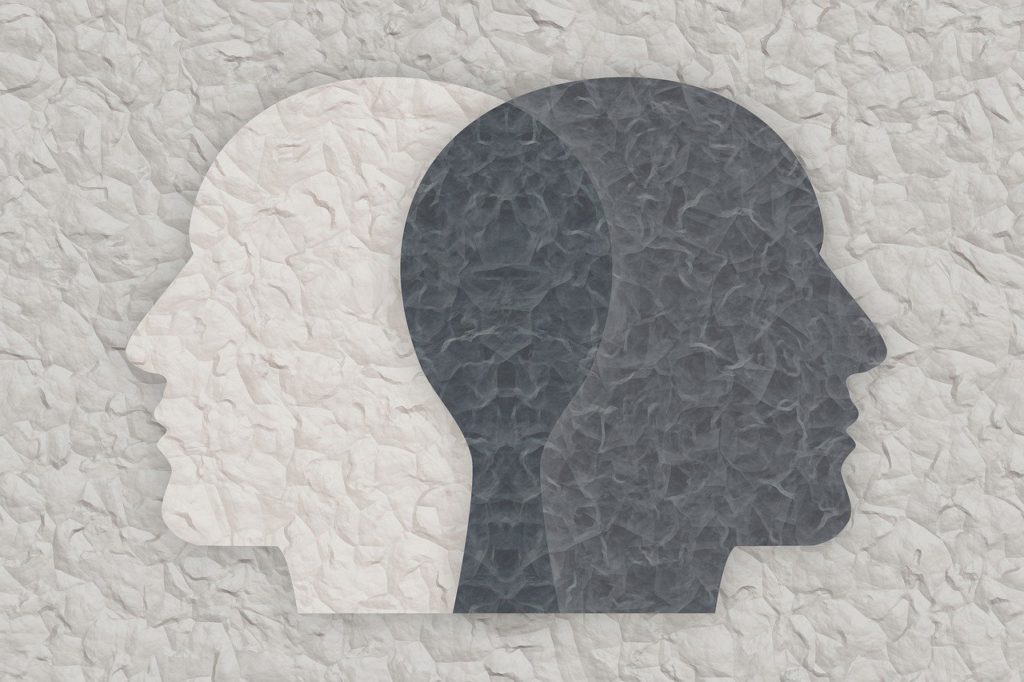
I. Introduction
Welcome to the Wellness Institute of Southern Nevada’s blog. As a mental health nurse practitioner with a passion for providing comprehensive care, I am excited to delve into the topic of Bipolar Type II and share insights that can help individuals navigate this complex condition.
At the Wellness Institute of Southern Nevada, I understand the challenges that come with Bipolar Type II and am dedicated to offering personalized support tailored to each individual’s needs. Through a combination of evidence-based treatments, compassionate care, and ongoing support, I aim to empower my clients to manage their condition effectively and live fulfilling lives.
Throughout this blog, I will draw upon my experience working with Bipolar Type II patients, as well as the latest research in the field, to provide valuable information and practical strategies for coping with this condition. Whether you’re newly diagnosed, a caregiver seeking guidance, or simply interested in learning more about Bipolar Type II, I invite you to join me on this journey of exploration and empowerment.
II. Understanding Bipolar Type II
Bipolar Type II is a mood disorder characterized by recurrent episodes of depression and hypomania. Unlike Bipolar Type I, which involves full-blown manic episodes, Bipolar Type II is defined by hypomanic episodes that are less severe and typically do not cause significant impairment in daily functioning.
Individuals with Bipolar Type II often experience prolonged periods of depressive symptoms interspersed with shorter periods of hypomania. These mood swings can have a profound impact on various aspects of life, including relationships, work, and overall quality of life.
Key characteristics of Bipolar Type II include:
– Depressive Episodes: These episodes are marked by persistent feelings of sadness, hopelessness, and loss of interest or pleasure in activities once enjoyed. Other symptoms may include changes in appetite or sleep patterns, fatigue, difficulty concentrating, and thoughts of death or suicide.
– Hypomanic Episodes: Unlike full-blown manic episodes seen in Bipolar Type I, hypomanic episodes in Bipolar Type II are characterized by a distinct period of elevated or irritable mood, increased energy or activity, and a heightened sense of self-esteem or grandiosity. While hypomania may lead to increased productivity or creativity, it can also manifest as impulsivity, agitation, or risky behavior.
– Cyclical Nature: Bipolar Type II is marked by a cyclical pattern of mood episodes, with periods of depression typically lasting longer than periods of hypomania. These mood fluctuations can vary in frequency and intensity from person to person, making it essential to monitor symptoms closely and seek timely intervention when needed.
III. Diagnosis and Assessment
Accurate diagnosis and comprehensive assessment are crucial steps in effectively managing Bipolar Type II. At the Wellness Institute of Southern Nevada, I employ a collaborative approach to diagnosis, drawing upon a combination of clinical interviews, symptom monitoring, and validated assessment tools.
My experience as a mental health nurse practitioner allows me to take the time to listen to each individual’s unique experiences and concerns, conducting a thorough evaluation to gather information about mood symptoms, personal and family history, and any co-occurring conditions. I understand that Bipolar Type II can often coexist with other mental health disorders, such as anxiety or substance use disorders, further complicating the diagnostic process.
In addition to clinical assessment, I utilize standardized rating scales and questionnaires to supplement my evaluation and track changes in mood symptoms over time. These tools help me monitor treatment progress, identify potential triggers or patterns, and make informed decisions about medication management and therapy options.
By taking a comprehensive and collaborative approach to diagnosis, I strive to ensure that individuals receive an accurate diagnosis and appropriate treatment plan tailored to their specific needs.
IV. Bipolar Type II Treatment Approaches
Effective Bipolar Type II treatment often involves a combination of medication, therapy, and lifestyle interventions aimed at stabilizing mood, managing symptoms, and promoting overall well-being. At the Wellness Institute of Southern Nevada, I believe in a holistic approach to treatment that addresses the physical, emotional, and social aspects of the condition.
Medication Management: Medications play a crucial role in managing Bipolar Type II symptoms and preventing mood episodes. Mood stabilizers are commonly prescribed to help regulate mood swings and prevent the recurrence of depressive or hypomanic episodes. Antidepressants may also be used cautiously to treat depressive symptoms, often in combination with mood stabilizers to minimize the risk of inducing mania.
I closely monitor medication response and side effects, adjusting dosages as needed to optimize effectiveness and minimize adverse reactions. I understand that finding the right medication regimen can take time and patience, and I work collaboratively with each individual to find a treatment plan that works best for them.
Therapy Options: In addition to medication, therapy is an essential component of Bipolar Type II treatment. Cognitive-behavioral therapy (CBT) and interpersonal and social rhythm therapy (IPSRT) are two evidence-based approaches that have been shown to be effective in managing mood symptoms and improving coping skills.
CBT helps individuals identify and challenge negative thought patterns and develop practical strategies for managing stress, while IPSRT focuses on stabilizing daily routines and interpersonal relationships to help regulate mood. I work closely with clients to tailor therapy approaches to their specific needs and goals, providing support and guidance every step of the way.
Lifestyle Interventions: In addition to medication and therapy, lifestyle interventions play a vital role in managing Bipolar Type II and promoting overall wellness. Adequate sleep, regular exercise, healthy eating habits, and stress management techniques can help stabilize mood, reduce symptoms, and improve quality of life.
At the Wellness Institute of Southern Nevada, I provide education and support to help individuals incorporate these lifestyle interventions into their daily routines. My goal is to empower clients to take an active role in their own care and make positive changes that support their mental and emotional well-being.
V. Personalized Care at the Wellness Institute of Southern Nevada
At the Wellness Institute of Southern Nevada, I am committed to providing personalized care that addresses the unique needs and circumstances of each individual living with Bipolar Type II. Recognizing that no two individuals are alike, I take a holistic approach to treatment that considers the physical, emotional, and social factors impacting their well-being.
Through comprehensive assessments and collaborative discussions, I work closely with clients to develop customized Bipolar Type II treatment plans that align with their goals and preferences. Whether it’s finding the right combination of medications, exploring therapy options, or implementing lifestyle interventions, I prioritize open communication and shared decision-making to ensure that clients feel empowered and supported throughout their journey.
My dedication to personalized care extends beyond the treatment room, as I actively involve clients in their own care and provide resources and support to help them navigate challenges and build resilience. By fostering a supportive and compassionate environment, I strive to create a partnership based on trust and mutual respect, where clients feel heard, valued, and empowered to take charge of their mental health.
Through ongoing monitoring and collaboration, I am committed to helping individuals living with Bipolar Type II achieve stability, manage symptoms effectively, and lead fulfilling lives.
VI. Are You In Need of Bipolar Type II Treatment? Schedule an Appointment Today!
Navigating Bipolar Type II can be challenging, but with the right support and guidance, individuals can learn to manage their symptoms and live well. At the Wellness Institute of Southern Nevada, I am dedicated to providing comprehensive care that addresses the unique needs of each individual, empowering them to take control of their mental health and thrive.
Through a combination of medication management, therapy, and lifestyle interventions, I work collaboratively with clients to develop personalized treatment plans that promote stability and well-being. By fostering a supportive and compassionate environment, I strive to create a partnership based on trust and mutual respect, where clients feel empowered to make informed decisions about their care.
If you or someone you know is living with Bipolar Type II, I encourage you to reach out for support. Remember, you are not alone, and help is available. Together, we can navigate the challenges of Bipolar Type II and work towards a brighter, more hopeful future.
